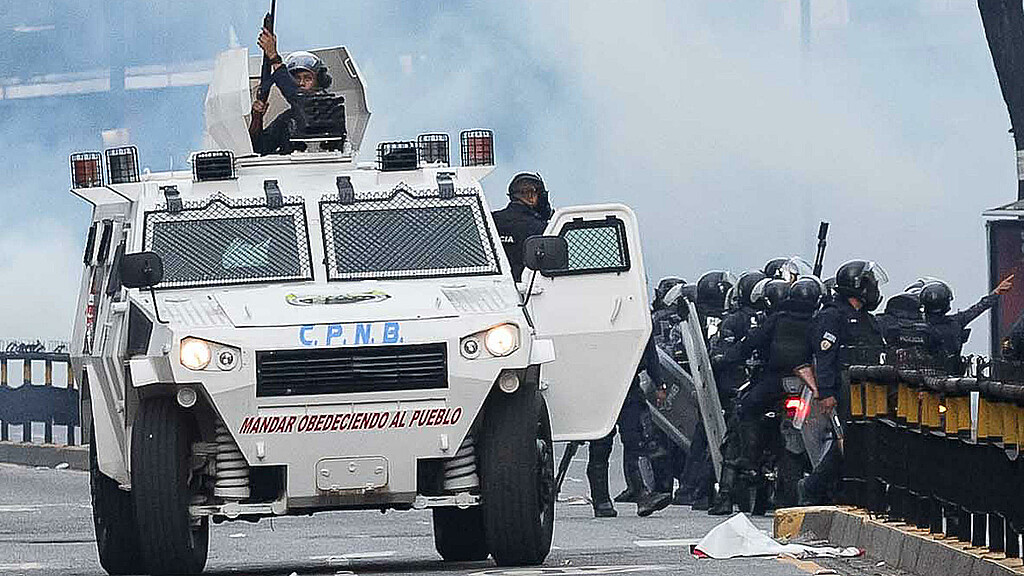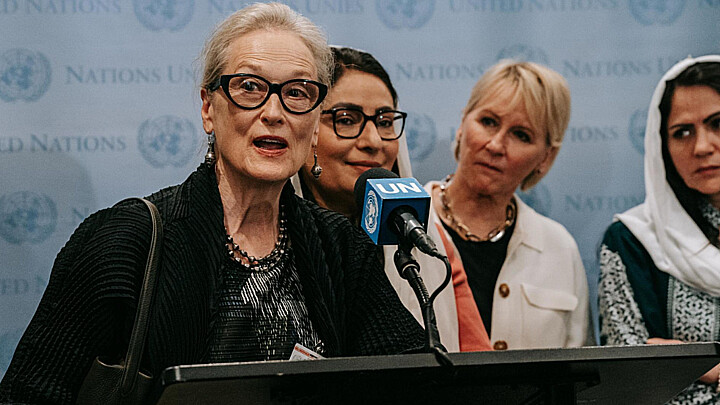Human Rights
Freedom House warns of "transnational repression," and restrictions on "freedom of movement" against human rights defenders
The American NGO released a report with a list of more than 50 nations around the world where political dissent is punished

August 22, 2024 10:43am
Updated: August 23, 2024 9:20am
The American NGO Freedom House warned this Wednesday about the growing use of repressive measures against dissidents. The report, titled “No Way In or Out: Restricting Freedom of Movement” covers more than 50 countries, illuminates the growing repression in Cuba, Nicaragua, and Venezuela stand out.
The document to several methods of repression including the government restricting freedom of movement for dissidents and opposition activists who speak out against authoritarian and totalitarian regimes. Freedom of movement is guaranteed by Articles 12 and 13 of the Universal Declaration of Human Rights.
According to the organization's annual report, authoritarian regimes worldwide are now using coercive measures that include withdrawing dissidents’ citizenship and leaving them stateless, travel bans, withholding passports and other identification documents needed to travel, and the denial of consular services.
The document, which focuses on “transnational repression,” and highlights that these restrictions are less visible forms of repression compared to the murders and kidnappings, but impactful.
“Transnational repression” is a relatively new term that began to be used after the murder of Saudi journalist Jamal Khashoggi in his country's consulate in Istanbul in 2018, where he was collecting a series of documents needed to marry his fiancée.
In total, according to Freedom House, some 55 States now use at least one of these four types of restrictions on the freedom of movement of their citizens. The reports’ conclusions are based on interviews with 31 people from Saudi Arabia, Belarus, India, Nicaragua and Rwanda who have endured some form of transnational repression.
The report, available on the North American NGO's website, refers to both individual dissidents and pro-democracy activists, such as those from Hong Kong who are exiled to the United Kingdom, or entire groups such as Eritreans, who live abroad.
One of the examples the organization used to visualize its results are tactics used by the Nicaraguan Ortega dictatorship, which in 2023, stripped 222 imprisoned opponents of their nationality shortly after deporting them to the United States.
The report asserts that Ortega regime officials forced each of the opponents to sign a form in which it was stated that they consented to the deportation.
Another 94 Nicaraguans, most of whom were living in exile, lost their citizenship and property, the document says. In Nicaragua, travel bans extend to relatives of opponents, who cannot buy plane or bus tickets because the regime shares data with transportation companies, the report adds.
Stripping nationality is a widespread measure in the Middle East that, in the last decade, has affected hundreds of people in Bahrain, Egypt, Kuwait and the United Arab Emirates.
Of the 55 states, at least 40 impose prohibitions on leaving or entering the country, according to the text. In many of these nations, such as India and Saudi Arabia, there is no official list of those affected, so they often find out about the travel ban at the airport or through rumors.
The report also says that at the beginning of the month, international organizations working in defense of human rights condemned the high rates of repression and violence in Venezuela and demanded that Maduro regime authorities guarantee the right to protest and respect “essential elements” of democracy for Venezuelans.
The organization also stressed its concern about arbitrary arrests and the criminalization of protest, especially in the pre-electoral and post-electoral landscape of the South American country, which has a history of being marked by repression and multiple human rights violations.
In the case of the Venezuelan Chavista regime, those violations also include “a serious pattern of politically motivated arrests, potentially unlawful deaths, restrictions on press freedom, and internet shutdowns,” says Freedom House.
In conclusion, the report indicates that “governments and civil society organizations must publicly condemn arbitrary mobility controls and [engage] in strategies designed to support human rights defenders.”









